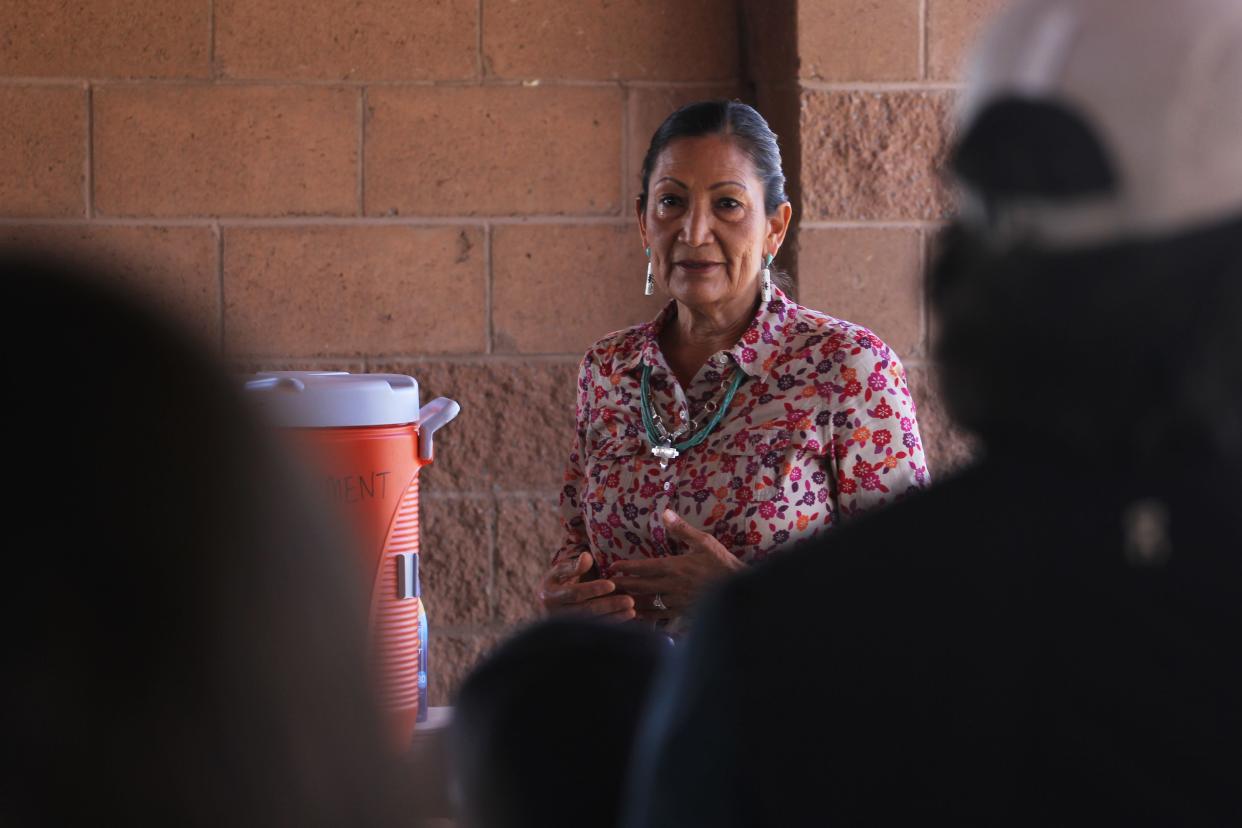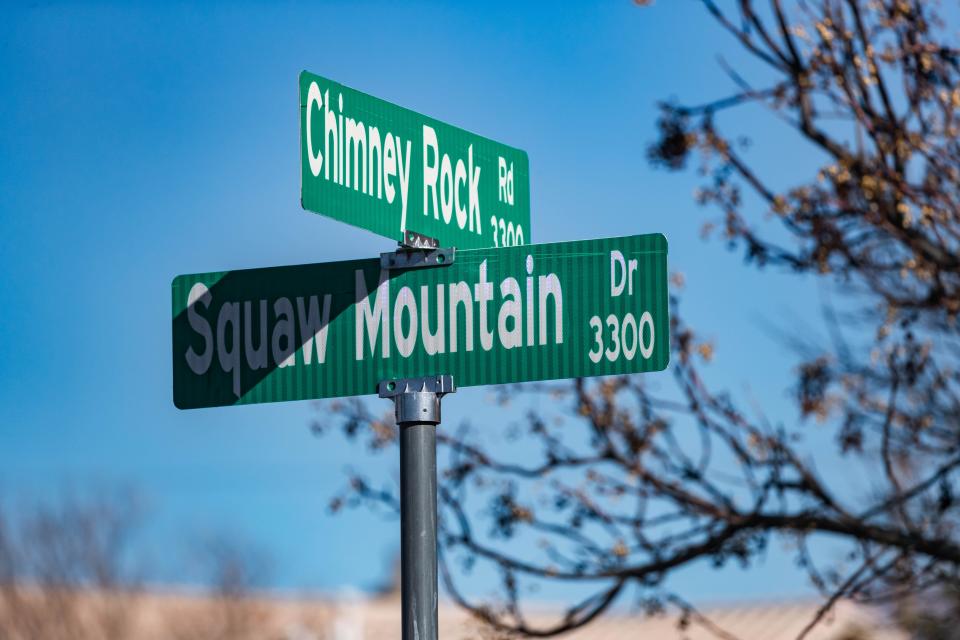Interior Department renames southern New Mexico peak which previously bore Indigenous slur

LAS CRUCES - The federal government has given a new name to a mountain peak in Doña Ana County which previously used a slur for Native American women.
The summit, formerly named Squaw Mountain, has been renamed Bar Mountain. The U.S. Department of the Interior announced Sept. 8 the Board on Geographic Names (BGN) had voted on final replacement names for nearly 650 geographic features which used the word "squaw."
The list includes 13 geographic features in New Mexico, other peaks, valleys, canyons, streams and reservoirs, located in Sierra, Socorro, Grant, Chaves, Sandoval, San Juan, Catron and Otero counties in addition to the peak in Doña Ana County.
In Otero County, a reservoir previously named Squaw Tank is now Lone Butte Tank. In San Juan County, Squaw Spring became Tuurkava Paachihpi Spring.
Bar Mountain is located just south of the Dripping Springs Natural Area east of Las Cruces in the Organ Mountains-Desert Peaks National Monument.
The word "squaw" is a derogatory term that is used to refer to Indigenous women. Last fall, U.S. Interior Secretary Deb Haaland, the first Indigenous woman to lead a Cabinet agency and a former New Mexico congresswoman, formally labeled the term a slur and directed the federal government to rid the word from geographic features on federal lands.
The slur is generally thought to have been derived from the Algonquin language, with an originally neutral meaning that became demeaning and misogynistic as white settlers continued to use it. Even before Haaland's actions last year, places around the country which bore the term have changed or considered changing it.
“I feel a deep obligation to use my platform to ensure that our public lands and waters are accessible and welcoming. That starts with removing racist and derogatory names that have graced federal locations for far too long,” said Haaland in a news release. “I am grateful to the members of the Derogatory Geographic Names Task Force and the Board on Geographic Names for their efforts to prioritize this important work. Together, we are showing why representation matters and charting a path for an inclusive America.”
The list of new names and a map of their locations is available on the U.S. Geological Survey website.
However, an effort to rename a street in Las Cruces which still uses Bar Mountain's old, offensive name has failed to come to fruition since too many property owners on the street oppose any change. Haaland's actions are only at the federal level and do not affect the City of Las Cruces.
On Thursday, a city spokesperson said there had been no new developments in the effort to rename that roadway.

The Interior Department said its task force received more than 1,000 recommendations for new names during a public comment period and another several hundred through nation-to-nation consultation with 70 Tribal governments. Several complicating factors were weighed by the renaming task force, the DOI said, including evaluating multiple public or Tribal recommendations for the same feature; features that crossed Tribal, federal and state jurisdictions; inconsistent spellings of some Native language names; and "reconciling diverse opinions from various proponents."
The Derogatory Geographic Names Task Force included representatives from the Bureau of Indian Affairs, Bureau of Land Management, Bureau of Safety and Environmental Enforcement, National Park Service, Office of Diversity, Inclusion and Civil Rights, Office of Surface Mining Reclamation and Enforcement, and the U.S. Geological Survey and the Department of Agriculture’s U.S. Forest Service.
While the new names are immediately effective, the DOI said the public, a Tribe or other interested party can still suggest a new name through the normal BGN process if they feel a new one is not appropriate, though the usual review process will apply.
Haaland has also created a federal advisory committee to evaluate and recommend changes to other derogatory federal geographic names. The Interior Department said Thursday it would announce an update on that committee's status in the coming weeks.
Others are reading:
Las Cruces amateur boxer Samantha Ginithan makes history with Golden Gloves title
Learning from NM mistakes, Forest Service to better heed drought factor before burns
Michael McDevitt is a city and county government reporter for the Sun-News. He can be reached at 575-202-3205, mmcdevitt@lcsun-news.com or @MikeMcDTweets on Twitter.
This article originally appeared on Las Cruces Sun-News: New Mexico geographic features with Indigenous slur get new names

